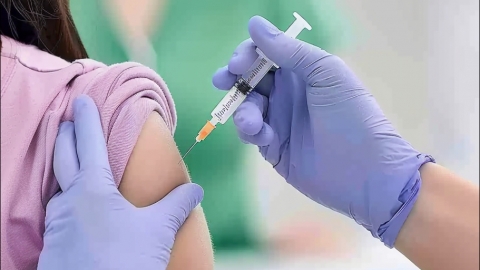What should you pay attention to when getting a vaccine booster shot?
Generally, there are several important points to keep in mind when receiving a vaccine booster dose, including understanding your health status, avoiding vaccination on an empty stomach, properly caring for the injection site, monitoring post-vaccination reactions, and postponing other vaccinations. The details are as follows:
1. Understand Your Health Status
Before vaccination, confirm whether you are experiencing any illness or discomfort. If you currently have a cold or fever, your immune system is already active; receiving the vaccine at this time may worsen fever symptoms and potentially affect vaccine efficacy. If you suffer from a severe chronic condition that is in an acute phase—for example, diabetic ketoacidosis—your body's tolerance is reduced, and vaccination could trigger adverse reactions.

2. Avoid Vaccination on an Empty Stomach
Vaccinating while fasting can lead to low blood sugar levels. Some individuals may already be prone to hypoglycemia. During vaccination, factors such as emotional stress or pain stimulation may more easily trigger symptoms like dizziness, nausea, palpitations, or even fainting, which could compromise safety during the procedure. Therefore, it is advisable to eat a light meal before vaccination to maintain stable blood glucose levels.
3. Care for the Injection Site
For 24 hours after vaccination, avoid getting the injection site wet. After vaccination, there is a tiny wound in the skin, and contact with water may allow bacteria to enter, leading to local infection characterized by redness, swelling, pain, or pus formation. Additionally, do not rub the injection site vigorously, as this may damage local tissues, delay wound healing, or cause the vaccine components to disperse, potentially interfering with the development of a localized immune response.
4. Monitor Post-Vaccination Reactions
After vaccination, remain at the clinic for observation for 30 minutes and only leave if no abnormalities occur. Some individuals may experience mild side effects such as redness or pain at the injection site, low-grade fever, or fatigue. These are typically normal immune responses and usually resolve spontaneously within 1–2 days. However, if serious symptoms develop after leaving—such as persistent high fever, difficulty breathing, or widespread rash—seek immediate medical attention to prevent worsening complications.
5. Postpone Other Vaccinations
Unless under special circumstances, there should be at least a 14-day interval between the booster shot and any other type of vaccine. Administering multiple vaccines simultaneously or within a short timeframe may increase the risk of adverse reactions. It may also overwhelm the immune system with multiple antigens at once, potentially reducing the effectiveness of each vaccine and compromising optimal protection.
In addition, strenuous physical activity and excessive fatigue should be avoided shortly after vaccination. Maintaining a light diet and avoiding spicy or irritating foods can help the body recover better and support optimal vaccine performance.




